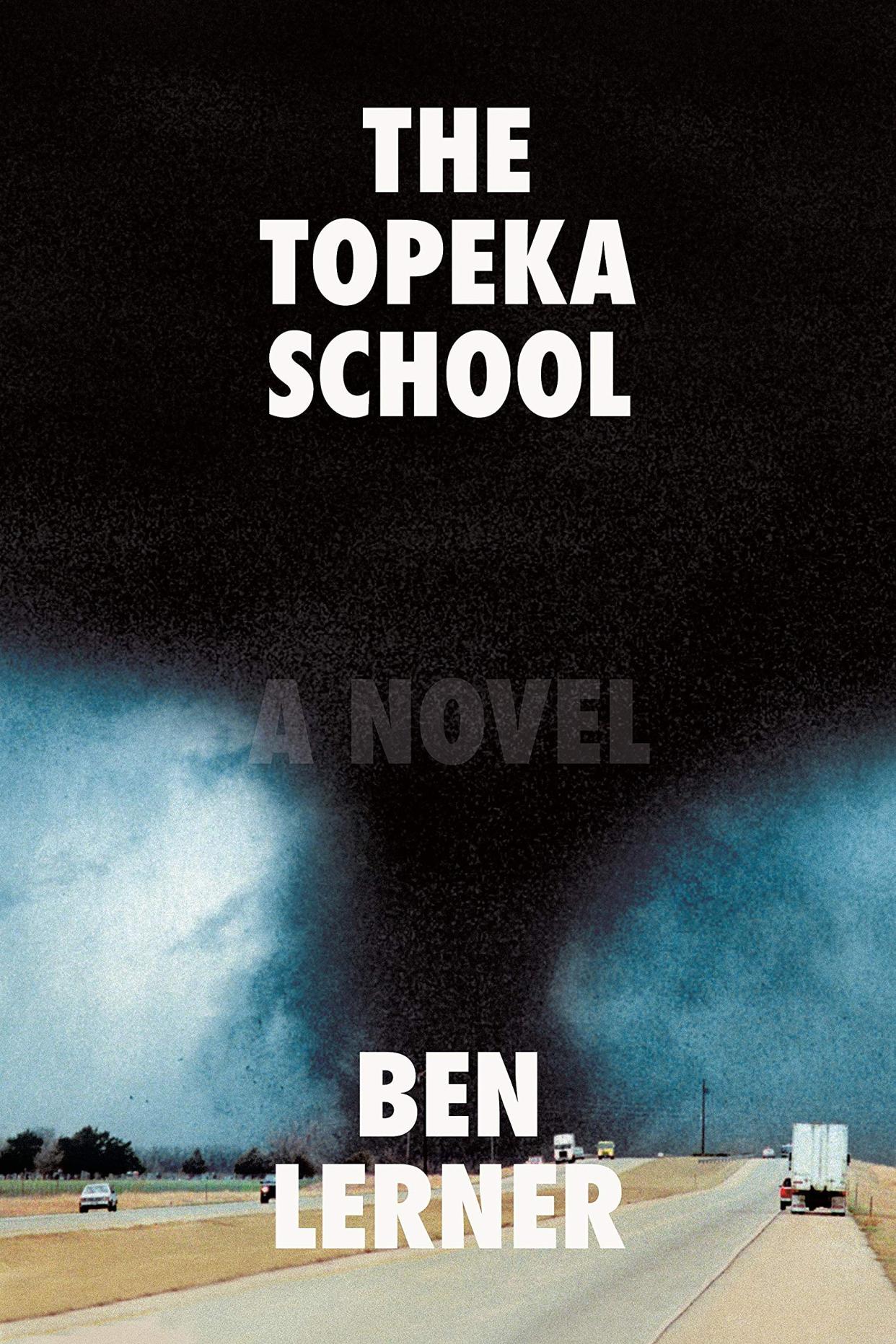Ben Lerner tackles toxic masculinity in the provocative Topeka School

Ben Lerner (10:04) discards the riveting first-person immediacy of his previous novels for a more wide-ranging approach in The Topeka School, to mixed results. Largely set in the Kansas capital circa 1996, the book alternates between the perspectives of Adam Gordon, a high school senior and champion debater (as Lerner was), and his “lefty” parents, Jonathan and Jane, lauded psychologists (like Lerner’s parents were) suffering through a strained marriage. Interludes focused on Adam’s classmate Darren, a troubled kid who commits a heinous act of violence, ominously build suspense; notes from Adam in the present day read like Lerner’s attempts to contextualize the novel’s many strands.
The Topeka School interrogates toxic masculinity and the erosion of political discourse with a level of brilliance fans of Lerner should be familiar with; in this novel, he tackles these themes from a range of distinctive angles. Lerner’s careful frame keeps the story largely stuck in its ’90s setting, but the telling is intently, clearly contemporary. Thus the author searingly and precisely links the dawning of the Clinton years to the terrors of the Trump era.
This is evident in matters both obvious — the misogyny faced by Jane, perhaps the book’s most compelling narrator, or the demons and alienation tormenting Darren — and subtle. Most ingeniously, Lerner realizes the performative high school debate stage as a training ground for the kind of post-2016 gaslighting that’s become the American norm. As he writes of the competition, “The key was to be a bully, quick and vicious and ready to spread an interlocutor with insults at the smallest provocation.”
But with so many points to hit — Bob Dole, the Westboro Baptist Church, and Donald Trump all get ample space here — Lerner’s ferociously singular prose doesn’t carry as much power. It’s a pleasure to read him in a more conventionally novelistic mode; he’s tremendously gifted there, even if he gets more credit for his autofictional prowess (still, to be clear, on display here as well). The book’s first scene, so strikingly evocative of a time and place in this country, wanders through the (literal) darkness of Midwestern suburbs with gripping suspense and a touch of biting wit. It’s a great standalone piece, and comes to mind as The Topeka School steers toward its denouement, which crystallizes Lerner’s aims with comparatively blunt force. There is a format shift. There is a groan-worthy Ivanka Trump reference. And there is the sense that Lerner is straining to scale up the impact of this novel, to make explicit the thread that weaves his disparate parts into an explosive, politically relevant, male-dominated whole.
Particularly because of that impulse, The Topeka School doesn’t quite get there. But perhaps, as a broader meta-commentary on fiction of the Trump presidency, it’s dismayingly effective, too: a reminder that, no matter how sharp a critique you construct, you’ll find yourself fighting on his ground in the end. B
Related content:

